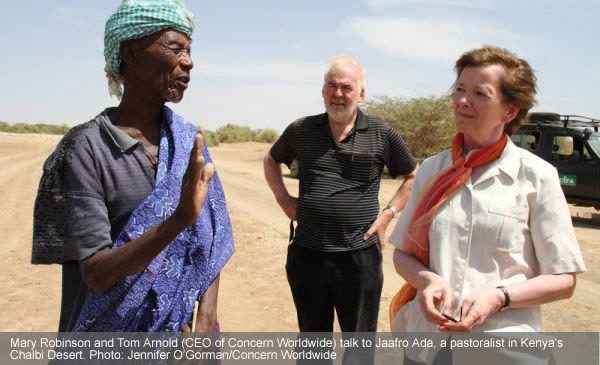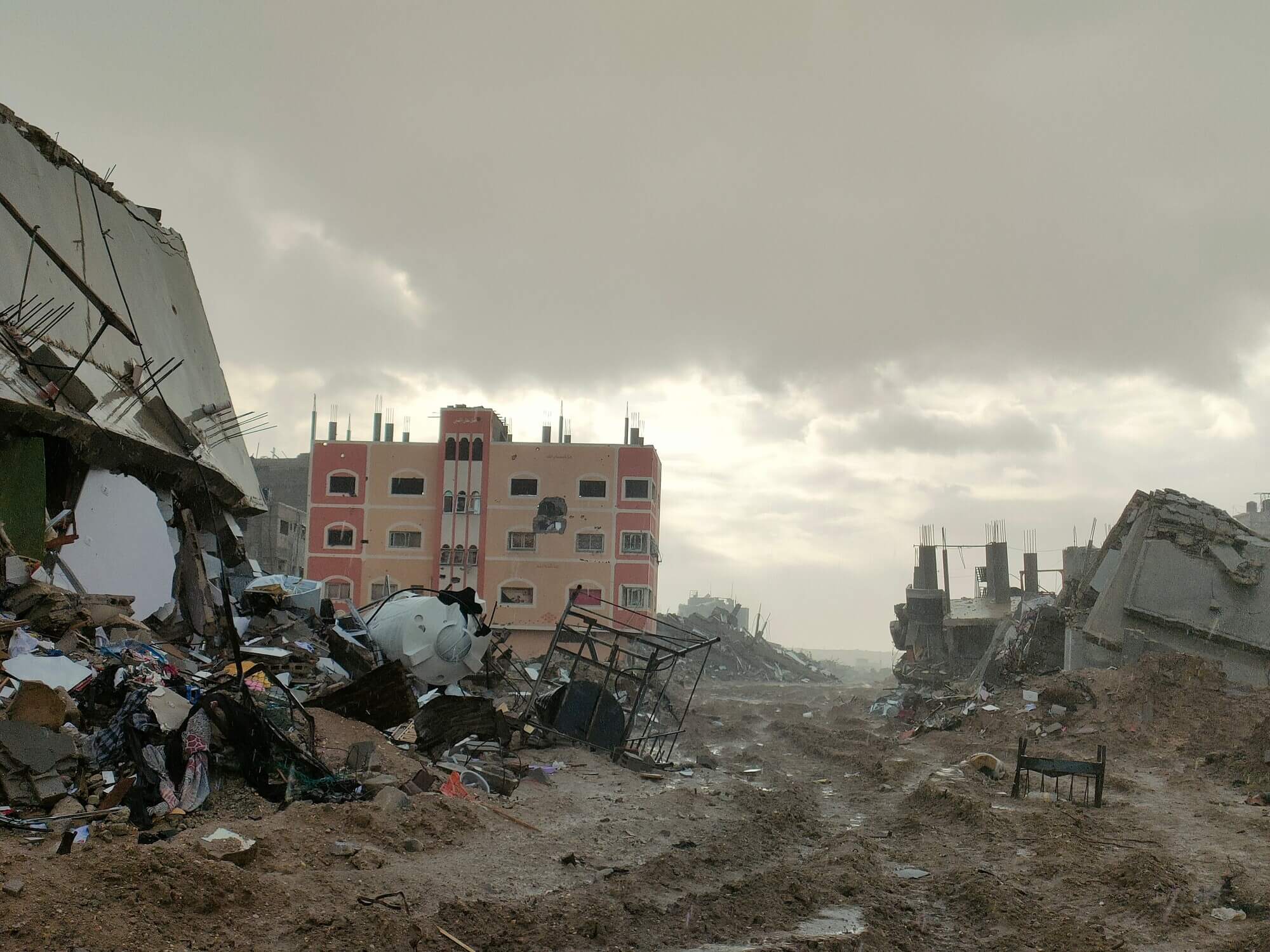Former Irish President and Oxfam Global Ambassador Mary Robinson recently returned from Somalia, a visit she made with representatives from aid agencies Trocaire, Concern and Oxfam. Mrs Robinson, a long-time advocate for human rights and climate justice, first travelled to the conflict- and drought-stricken country in 1992 to draw the world’s attention to the situation there. Nineteen years later, she encountered “a perfect storm” of poor internal governance, ongoing conflict, drought and a changing climate – with the international community seemingly reluctant to help.
In a revealing interview with the ABC’s Lateline program, Mrs Robinson said, “This is about millions of people who must have access to basic food to stay alive, basic water … It’s already in a way a disgrace for all of us, not just the Somali government, that a famine has been fully developed, because the warning signs were there. Only 40% response has been met so far in the appeal for the Horn of Africa.”
While she emphasised the urgent need for immediate relief efforts, Mrs Robinson also acknowledged the importance of longer-term planning, of building communities’ resilience to increasingly erratic weather conditions. “We know that the climate impacts are going to get worse. I was haunted by having a sense I was seeing a window into a future that’s almost on us in a global sense in so many places, but this is a very vulnerable part in the Horn of Africa.”
Certainly, climate change has ravaged the region. “The drought is worse [than 1992], there’s La Niña effect and there’s also an increasing sense of this being the warmest eight years in the Horn of Africa ever.” In northern Kenya’s Chalbi Desert, pastoralists spoke of having walk ever-further to find water for their livestock: “You can almost see them becoming the next refugees if we’re not careful. And yet they have a perfectly viable life normally and indeed make a big contribution as pastoralists because they provide meat to the market.”
Pointing out that “we cannot let children die. This is the 21st century,” Mrs Robinson urged the Australian public to respond urgently to the relief effort.
To read the transcript or watch a video of Mrs Robinson’s interview in its entirety, visit the Lateline website.
Find out more about donating to our Africa food crisis appeal and help save lives.


